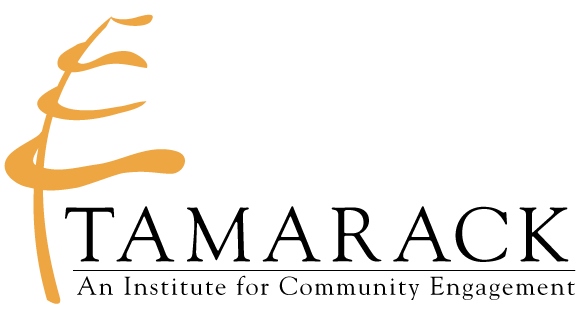Someone came to me today, a look of I don’t know what to do written across her face. She had a question. Something had come up. She wasn’t sure how to respond. It’s possible I laughed inappropriately.
And then I took a deep breath, asked her some questions, and tried to help troubleshoot the situation. She left with a plan of action.
I’d just gotten back from class where we’d talked about civic education. Specifically, we discussed this colorful story from Myles Horton. Meeting with a group of striking workers in his motel room, the workers “kept throwing out ideas….Finally they said they couldn’t come up with anything, any strategy, or anything to do. They were getting desperate.”
That’s when things get exciting:
They said: “Well, you’ve got more experience than we have. You’ve got to tell us what to do. You’re the expert.” I said: “No, let’s talk about it a little bit more. In the first place, I don’t know what to do, and if I did know I wouldn’t tell you, because if I had to tell you today then I’d have to tell you tomorrow, and when I’m gone you’d have to get somebody else to tell you.”
One guy reached in his pocket and pulled out a pistol and says, “Godddamn you, if you don’t tell us I’m going to kill you.” I was tempted to become an instant expert, right on the spot! But I knew that if I did that, all would be lost and then all the rest of them would start asking me what to do.
I’d been discussing this story not thirty minutes before my advice was sought, yet the moment someone asked me for help I went straight into problem solving mode. I didn’t quite tell her what to do, but I essentially told her what to do. Well, I told her what I would do.
I told her she should come back with other questions any time.
The moment she left I went back to thinking about dear old Myles Horton.
Maybe I should have refused to tell her.
I have a great respect for Horton. In his writing he comes off as thoughtful and open and genuine. The kind of person I’d want to just sit and think with for hours.
And I appreciate where he’s coming from with this story. The rise of expertise can be a problem – convincing “average” people that they are non-experts, that they have no skills, or wisdom, or insights to share.
That belief often becomes deeply internalized. People turn to the “experts” because that is what you’re supposed to do. It’s like turning to the back of the book to find the answers. Even if you try to work out the problem for yourself first – you check the back to make sure you are “right.”
Horton is bold to confront that paradigm – arguing that he would rather risk his life then perpetuate the myth of expertise.
Yet since I first heard Horton’s parable years ago, its continually been coupled with concerns that Horton takes education too far. I’ve even heard some call Horton less than charitable names. I see his point, but really? Seems to be a common consensus.
Like so many things, though, I think it comes down to context.
If someone asked me for advice on what to wear to a certain kind of social gathering, I’d give it freely. I mean, really, that stuff is hard to figure out. It’s like there’s a secret code. But its essentially a factual question. From experience, I’ve learned how to figure it out.
When someone asked for my advice today, I flashed back to not so many years ago when I was encountering situations I didn’t know how to handle, desperately turning to friends for advice asking what should I do???
Ah, I remember those days. And as I helped her think the situation through, I knew that one day – in not so long – she’d be in my seat, helping someone else through some situation they weren’t sure how to handle. So it goes.
But, perhaps, Horton is right to respond as he did in his situation. There is no right answer, no secret formula, no guaranteed path to success. He makes a point of starting his answer with that. In the first place, I don’t know what to do.
It’s when he continues – and if I did know I wouldn’t tell you - that he tends to lose people’s favor.
But it’s what he says after that which is critical: because if I had to tell you today then I’d have to tell you tomorrow, and when I’m gone you’d have to get somebody else to tell you.
If you’re looking for a guideline to go by, that seems like a good one.
I like to think that wasn’t true in my situation. By telling her today, I prepared her for tomorrow.
But in Horton’s case, perhaps it is true – telling them today wouldn’t prepare them to deal with a problem tomorrow. Telling them today would only reinforce the myth of expertise. He certainly thought was the case.
Truth be told, I’m not sure I know where the line is, but you can rest assured – I went back to my visitor shortly thereafter and apologized for possibly stunting her development.
Ah, man, I was just trying to help.













